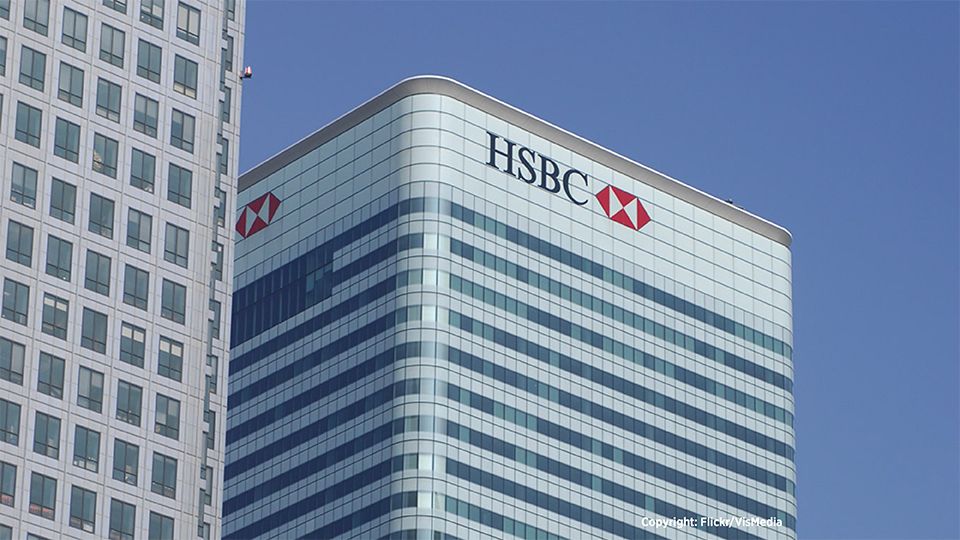ESG investment professionals have welcomed a ban on HSBC’s series of sustainability-focused adverts by the Advertising Standards Authority (ASA), which said the bank was misleading consumers.
In what has been described as the first ruling of its kind, the ASA said it had received 45 complaints over HSBC advertisements that showed statements around how they are planting trees and transitioning to net zero, but neglected to mention the £14bn (as at end of 2021) funding of fossil fuels and deforestation.
The ASA, which started looking at HSBC’s advertising earlier this year, said consumers seeing those ads would not expect the bank is simultaneously involved in financing fossil fuel businesses that contribute to climate change.
A statement on the ruling said: “We did not consider that [the ads meant] consumers would understand the intricacies of transitioning to net zero, and would not expect that HSBC, in making unqualified claims about its environmentally beneficial work, would also be simultaneously involved in the financing of businesses that made significant contributions to carbon dioxide and other greenhouse gas emissions, and would continue to do so for many years into the future.
“We concluded that the ads omitted material information and were therefore misleading.”
ASA said HSBC must ensure all “future marketing communications featuring environmental claims were adequately qualified and did not omit material information about its contribution to carbon dioxide and greenhouse gas emissions.”
Campaigners and ESG investment professionals said the move sets a precedent for other banks to be more transparent.
Robbie Gillett from campaign group Adfree Cities, who led the complaint against HSBC, said: “This is a significant moment in the fight to prevent banks from greenwashing their image. HSBC can no longer ply us with ads pretending they are green while continuing to bankroll climate breakdown in the background. HSBC and other banks such as Barclays and Standard Chartered must stop funding fossil fuels instead of attempting to buy public favour with deceptive marketing campaigns, before these reputational risks turn into legal ones.”
Adfree Cities also revealed it understands the Royal Bank of Canada is also being investigated by the Canadian Competition Bureau for misleading the public through advertising its commitments on climate action while also continuing to finance fossil fuel development.
See also: – ESG group takes aim at Vanguard over its stewardship
Reaction
Julia Dreblow, founding director at SRI Services and FundEcomarket, and ESG Clarity Committee member, said she is glad the ASA has decided to act.
“We all know the transition to a sustainable future is complex and that mistakes will be made, but misleading – or potentially misleading people – is not acceptable. For a company to seek to profit from financing new fossil fuel exploration while claiming to help address climate change is wrong. The strategies are mutually exclusive.
“If we are to improve trust in the financial sector behaviour like this must end,” she said.
Tony Burdon, CEO at Make My Money Matter, welcomed the ASA decision and said the ruling “begins to turn the tide against banks like HSBC – and other leading UK banks – who may hide their dangerous relationship with the fossil fuel industry through a campaign of misleading and contradictory corporate advertising.”
“By shining a light on this critical issue, we hope this ensures leading high street banks like HSBC, Barclays, Santander, Natwest and Lloyds, back their adverts with action and permanently commit to ending financing for new fossil fuel expansion,” Burdon added.
Make My Money Matter will soon launch a campaign on the big five UK high street banks – HSBC, Barclays, Santander, Natwest and Lloyds – calling on them to stop financing fossil fuel business.
Meanwhile, stewardship director at Rathbones and ESG Clarity Committee member Matt Crossman said the Rathbones team had engaged with HSBC on numerous issues, most recently meeting with the company in February 2020, discussing fossil fuel financing among other topics. Subsequently in December 2020, Rathbones co-filed a climate change resolution, co-ordinated by ShareAction ahead of the group’s AGM.
Crossman explained: “This called on HSBC to publish a strategy to reduce its exposure to fossil fuel assets but following discussions with the board, this resolution was withdrawn in favour of proposal tabled by the board. This resolution passed and commits HSBC to phase out financing of coal-fired power and thermal coal mining by 2030 within OECD countries and 2040 elsewhere.
Commenting on the ruling he said: “The complexity of such businesses comes as no surprise to anyone, but the ruling, once again, highlights the importance of transparency and the role of engagement.”
Morningstar’s director of investment stewardship research Lindsey Stewart reacted:
“But the ASA’s decision does reflect regulators’ increasing scrutiny of financial services companies that make bold claims about their efforts to tackle climate change. There is a clear expectation that such claims must be backed by hard evidence and a track record of meaningful climate-positive action.”
Coal phase-out for funds
In September, HSBC‘s asset management arm announced it will phase coal-fired power and thermal coal mining out of its listed holdings by 2030 in the EU and OECD and by 2040 globally.
In active portfolios this means phasing out listed securities of issuers with more than 2.5% revenue exposure to these activities. The firm also stated it will take action against companies not showing credible plans to phase out coal.








